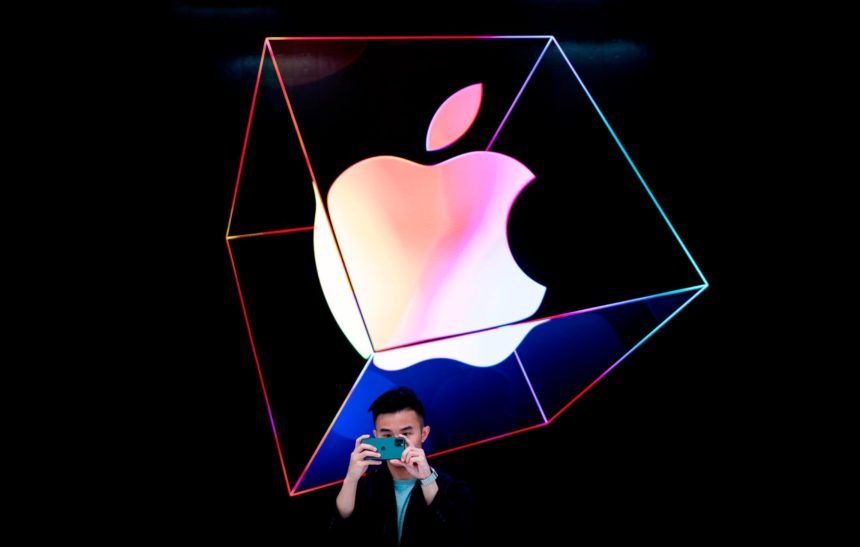Apple TV+ is coming for your iPhone. Here’s everything you need to know

Apple has been synonymous with names like iPhone, iPad and MacBook. On Friday, the company hopes that it will also be synonymous with names like Jennifer Aniston, Oprah Winfrey and Snoopy.
Apple TV+, the company’s long-awaited streaming service, launches on Friday in more than 100 countries. The service is Apple’s foray into prestige content and it debuts amid the so-called “streaming wars,” which pits Big Media against Big Tech in the battle for consumers’ limited time and money.
The launch of Apple TV+ is a big moment for the company and for its CEO Tim Cook. The iPhone’s slumping sales means Apple has to convince existing customers to pay for services on the phones and laptops they already own.
It’s a big bet for Cook and the company, which is reportedly spending $6 billion on content. But it’s a bet that Apple needs to make, according to Tom Forte, an equity analyst at D.A. Davidson.
“They had to diversify their business model because they were over reliant on smartphone sales,” Forte told CNN Business. “And the smartphone market has more than matured.”
In short, if the Steve Jobs era of Apple was defined by the unparalleled success of the iPhone, the Cook era may be defined by what Apple can convince us to consume on those devices.
“I view the streaming endeavor as one of the most pivotal chapters in Cook’s legacy,” Dan Ives, Managing Director at Wedbush Securities, told CNN Business. “Ultimately, the success or failure of Apple’s streaming initiative is going to play a big role in the company’s ability to further monetize its 900 million iPhone customers worldwide.”
Apple’s appeal
Apple’s competitors may have years of experience in Hollywood and deep content libraries to appeal to subscribers, but Apple is one of the most recognized brands in the world. It also has access to a built-in audience via the 1.4 billion people who use its devices.
The service has programming from A-list talent and undercuts its competitors in price. Apple TV+ costs $4.99 a month, and it’s free for a year with the purchase of a new iPhone, iPad, iPod Touch, Mac or Apple TV. And much like Amazon, which has made its own aggressive push into video, Apple brings an established relationship with consumers to the battle.
And what Apple lacks in terms of a deep content library, it makes up for in star power.
There’s “The Morning Show,” a series about the behind-the-scenes drama in morning television starring Reese Witherspoon, Steve Carell, and Aniston — with the latter two making their returns to television. (CNN’s Brian Stelter is a consultant on the project, for which his book was used as background.)
Apple has also courted Steven Spielberg, Jason Momoa and J.J. Abrams for its content war chest. And then there is the multi-year deal with Winfrey, one of the most marketable names in entertainment.
The media mogul will produce documentaries and host “Oprah’s Book Club,” which will have Winfrey interviewing authors exclusively for the service. Winfrey said earlier this year that the Apple platform allows her “to do what I do in a whole new way.”
For the young and the young at heart, there is Sesame Workshop‘s “Helpsters” and “Snoopy in Space,” starring the beloved Peanuts’ beagle. A strong kids lineup will help Apple compete with the family-friendly Netflix, HBO Max and of course Disney+, a service backed by the company that has made a name for itself primarily with children’s content.
Despite a saturated market with an abundance of options, some like Katy Huberty, an equity analyst at Morgan Stanley, are bullish on Apple’s chances.
“We estimate Apple TV+ can become a $9 billion revenue business with 136 million paid subscribers by [fiscal year 2025], assuming just one in every 10 Apple user pays for the service by [fiscal year 2025],” Huberty wrote in a note last week.
Wedbush Securities’ Ives also believes Apple can be a strong competitor in the streaming wars.
“The reason I do believe that they’re going to be successful and viewed as an important player is because when Cook and Cupertino make a decision that they’re going to aggressively go after a market — just given the 60 billion a year they generate in free cash and the brand with 1.4 billion iOS devices to date — it’s hard to count them out,” he said.
